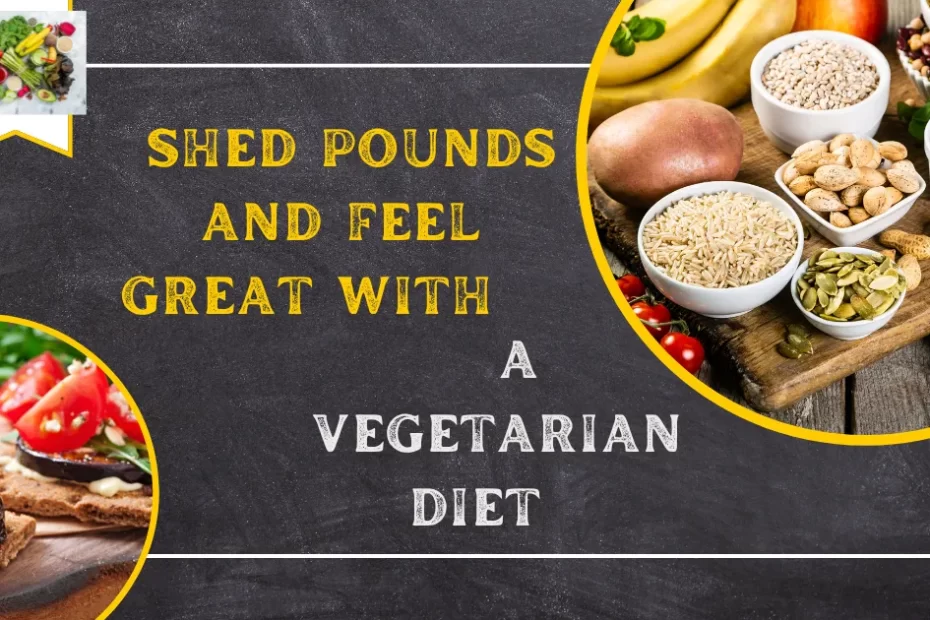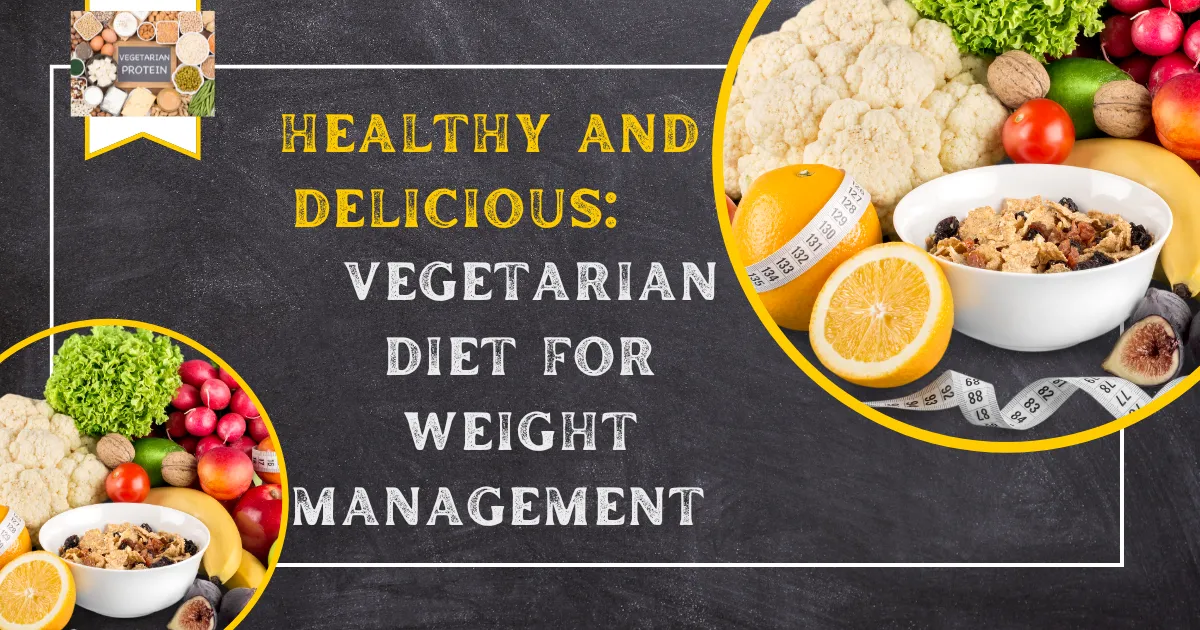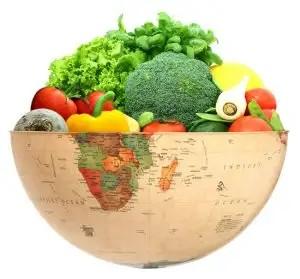If you’re looking for ways to lose extra pounds without having to undergo extreme measures, consider becoming a vegetarian or even a full-fledged vegetarian. We’ll cover why a vegetarian diet helps with losing body fat and provide some helpful tips related to the benefits of being a vegetarian (Vegan Diet Tips To Lose Weight).
- The Power of a Vegetarian Diet
-
Is a Vegetarian Lifestyle Right for You? Discover the Success Stories and Challenges
- Healthy and Delicious: A Vegetarian Diet for Weight Management
- Choosing a vegan diet means choosing a healthy way of eating
- Go Green with Vegetarian Diet Tips!
- Transform Your Body: Effective Vegetarian Diet Plans for Weight Loss
- Plant Power: 8 Protein-Rich Foods You’re Probably Underrating
- Vegetarian Diet: Is It the Key to a Healthier Life or Just Another Fad?
- Going Vegetarian and Gluten-Free: How to Make It Work for You
- Source & Credits (Vegetarian Diet):
The vegan lifestyle excludes animal products, including meat, fish, eggs, and dairy. Being a vegan can have many health benefits, such as lowering cholesterol, improving digestion, and reducing the risk of certain cancers. Although veganism is not suitable for everyone, it is an option that offers some health benefits.
A vegan diet is effective at treating various types of diseases, including heart disease, diabetes, and obesity, but can it also help people lose some extra pounds? Yes! And here’s why:
- It’s all about maintaining a healthy lifestyle for the rest of your life.
- A vegan diet can be helpful for some people who want to lose some pounds, but it probably isn’t for most of us who don’t eat meat.
The Power of a Vegetarian Diet
A vegetarian diet, rich in plant-based foods, offers numerous health benefits. It is low in saturated fat and cholesterol, high in fiber, vitamins, and minerals, and packed with antioxidants. This combination makes it an excellent choice for weight loss and overall wellness.
Is a Vegetarian Lifestyle Right for You? Discover the Success Stories and Challenges
1. Emphasize Whole Foods
- Focus on consuming whole, unprocessed foods such as fruits, vegetables, whole grains, legumes, and nuts.
- These foods are naturally low in calories and high in nutrients, making them perfect for weight loss.
2. Opt for Plant-Based Protein Sources
- Ensure you get an adequate amount of protein from plant-based sources like beans, lentils, tofu, tempeh, quinoa, and Greek yogurt.
- Protein helps keep you feeling full and satisfied, reducing cravings and aiding in weight loss.
3. Mindful Eating
- Practice mindful eating by paying attention to your body’s hunger and fullness cues.
- Eat slowly, savor each bite, and stop when you feel comfortably satisfied. This helps prevent overeating.
4. Portion Control
- Be mindful of portion sizes, as even healthy foods can contribute to weight gain if consumed in excess.
- Use smaller plates and bowls to visually trick yourself into feeling satisfied with smaller portions.
5. Stay Hydrated
- Drink plenty of water throughout the day. Sometimes, thirst can be mistaken for hunger, leading to unnecessary snacking.
- Water also helps boost metabolism and aids in digestion, both important factors in weight loss.
6. Incorporate Regular Physical Activity
- Engage in regular exercise to boost your weight loss efforts.
- Aim for a combination of cardiovascular exercises, strength training, and flexibility exercises to promote overall fitness.
7. Seek Support and Accountability
- Connect with a support system, such as friends, family, or online communities, to help you stay motivated and accountable on your weight loss journey.
- Share your successes and challenges, and celebrate your achievements along the way.
Healthy and Delicious: A Vegetarian Diet for Weight Management
Health benefits that have been associated with vegetarian and vegan diets include:
Some health advantages related to eating plant-based foods include:
- lower rates of cancer
- reduces the chance of having an ischemic attack or mini-stroke
- reduced inflammation
- lower cholesterol
- lower blood sugar levels and lower the risk of developing type 2 diabetes
- decreased risk of cataracts
Choosing a vegan diet means choosing a healthy way of eating
- Higher fruit and vegetable intake was associated with a lower risk of heart attack.
- Weight loss results: There’s a lot of evidence showing vegetarians eat fewer calories than meat eaters.
- Clear skin = a clearer mind! Cutting out animal fat from your diet will also mean cutting out much of its unhealthy fats, which are known to clog up your pores.
Go Green with Vegetarian Diet Tips!
- A vegan diet typically has less saturated fat than a non-vegan diet.
- Higher Fiber is part of Vegan Diets.
- Saturated fat typically has lower amounts in vegan diets than in non-vegan diets.
Transform Your Body: Effective Vegetarian Diet Plans for Weight Loss
One of the most prevalent misconceptions surrounding vegetarian and vegan diets is the fear that they may not provide enough protein. However, this concern is largely unfounded.
Understanding Protein Needs
Protein is an essential nutrient vital in various bodily functions, including tissue repair, hormone production, and enzyme synthesis. The recommended daily protein intake varies based on factors such as age, sex, weight, and activity level. For most adults, the average requirement falls between 46 and 56 grams per day.
Plant Power: 8 Protein-Rich Foods You’re Probably Underrating
| Protein Source | Protein (per 100g) | Calories (per 100g) | Key Nutrients | Health Benefits | Ideal For |
|---|---|---|---|---|---|
Seitan | 25g | 120 kcal | Iron, Selenium | High-protein meat substitute, low in fat | Bodybuilders, High-protein diets |
Tofu | 8g | 76 kcal | Calcium, Iron, Isoflavones | Heart health, bone support, and hormonal balance | Vegetarians, Menopause support |
Edamame | 11g | 121 kcal | Folate, Fiber, Vitamin K | Muscle recovery, cholesterol control | Snacks, Pre/post workout |
Green Vegetables | 2–4g | 25–40 kcal | Vitamin C, Fiber, Antioxidants | Anti-inflammatory, gut health, low calorie | Weight loss, Detox diets |
Legumes (e.g., lentils, chickpeas) | 8–9g | 116 kcal | Iron, Folate, Fiber | Blood sugar regulation, heart health | Vegan diets, Diabetics |
Soy Milk | 3.3g | 54 kcal | Calcium, Vitamin B12 (fortified) | Dairy-free calcium and protein source | Lactose intolerant, Vegans |
Oats | 13g | 389 kcal | Fiber, Iron, Magnesium | Energy boost, cholesterol reduction | Breakfasts, Athletes |
Chia Seeds | 17g | 486 kcal | Omega-3s, Fiber, Calcium | Satiety, heart health, and digestive aid | Keto, Clean eating, Smoothies |
Going Vegetarian and Gluten-Free: How to Make It Work for You
Going vegetarian and gluten-free can be a healthy and fulfilling lifestyle choice, but it requires careful planning to ensure you get all the necessary nutrients. Here are some tips to make it work for you:
1. Focus on whole foods: Opt for various fruits, vegetables, whole grains, legumes, nuts, and seeds to ensure a well-rounded diet.
2. Be mindful of protein sources: To meet your protein needs, incorporate plant-based sources such as beans, lentils, tofu, tempeh, and quinoa.
3. Make sure you are getting enough vitamins and minerals: Consider taking supplements or incorporating fortified foods to ensure you are getting enough B vitamins, iron, calcium, and vitamin D.
4. Read labels carefully: Being gluten-free means avoiding wheat, barley, and rye, so be sure to check food labels for hidden sources of gluten.
5. Experiment with new recipes: Embrace the challenge of trying new vegetarian and gluten-free recipes to keep your meals exciting and delicious.
By being mindful of your food choices and ensuring a balanced diet, you can successfully navigate the vegetarian and gluten-free lifestyle.
Source & Credits (Vegetarian Diet):
- https://www.healthline.com/nutrition/protein-for-vegans-vegetarians
- https://www.eatingwell.com/article/291111/the-10-best-vegan-protein-sources/
- https://www.verywellfit.com/tofu-nutrition-facts-calories-and-health-benefits-4113988
- https://www.medicalnewstoday.com/articles/157510.php
Share this:
- Click to share on Facebook (Opens in new window) Facebook
- Click to share on Pinterest (Opens in new window) Pinterest
- Click to share on LinkedIn (Opens in new window) LinkedIn
- Click to share on X (Opens in new window) X
- Click to share on Tumblr (Opens in new window) Tumblr
- Click to share on Bluesky (Opens in new window) Bluesky


